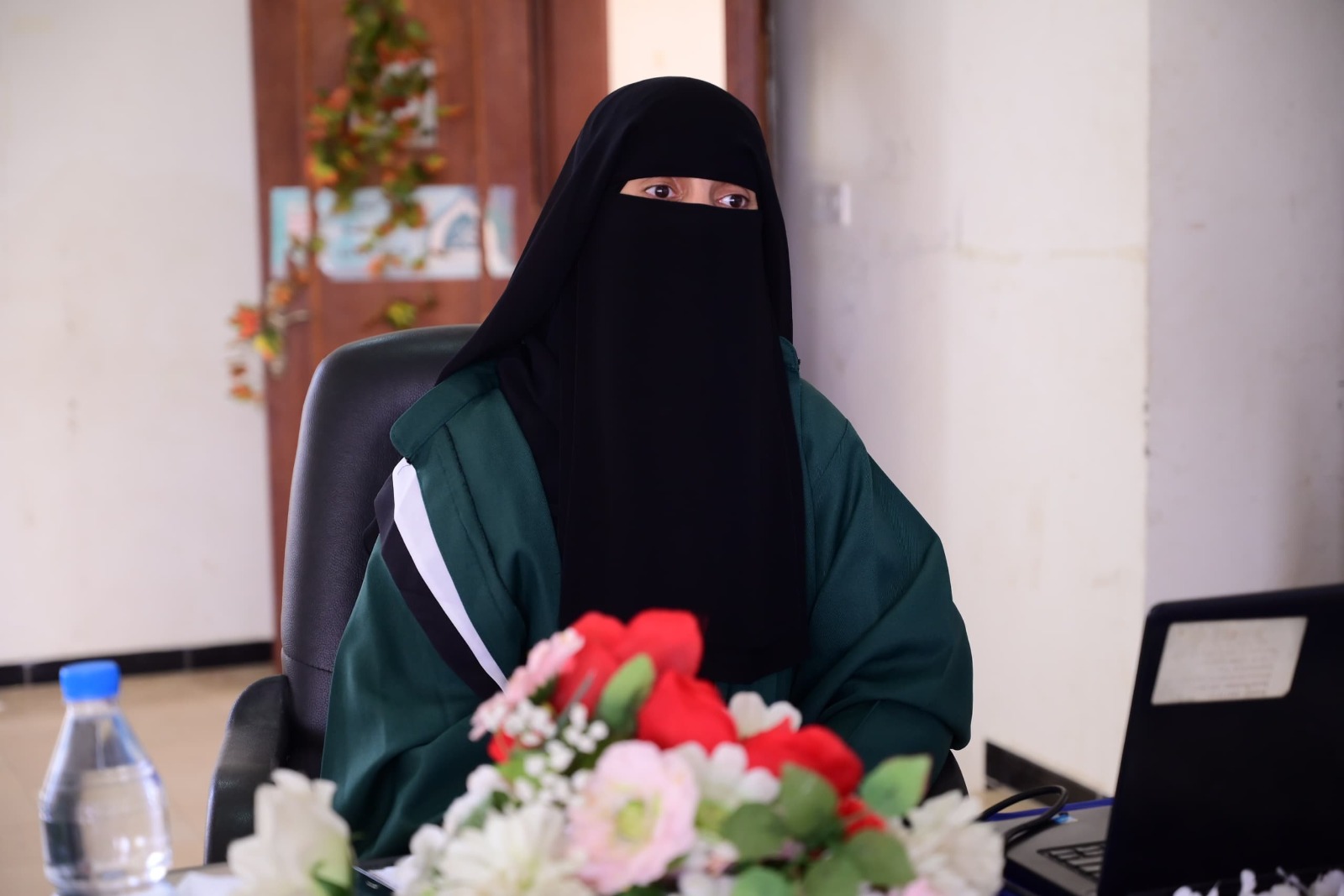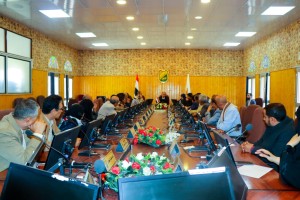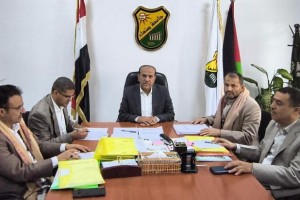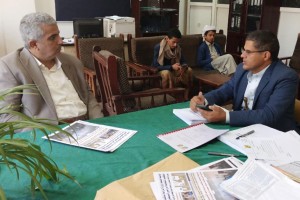Master’s Degree Awarded to Ms. Latifa Al-Saidi
- Categories Letters and Promotions - Graduate Studies, news
- Date May 26, 2025

Ms. Latifa Ghalib Ahmed Mohammed Al-Saidi was awarded a Master’s degree with a grade of (Excellent) and an average of 95% for her thesis titled “Descriptivism and Prescriptivism in the Methodology of Al-Zajjaji’s ‘Jumal’ Commentators: The Commentaries of Ibn Usfur, Yahya ibn Hamzah, and Ibn Hisham“, which was submitted to the Department of Arabic Language, majoring in Linguistics, Faculty of Languages – Sana’a University. The defense was held on Wednesday, Dhul-Qa’dah 23, 1446 Hijri, corresponding to May 21, 2025.
The MA Viva-voce Committee, which was formed based on a resolution issued by the Post-Graduate Studies and Scientific Research Council, consisted of the following:
| # | Committee Members | Designation | University | Position |
| 1 | Prof. Abbas Ali Al-Sawsoah | External Examiner | Taiz University | Chair |
| 2 | Assoc. Prof. Ahmed Hasan Al-Arousi | Main Supervisor | Sana’a University | Member |
| 3 | Assoc. Prof. Khalid Abdulhalim Al-Absi | Internal Examiner | Sana’a University | Member |
The thesis aimed to clarify the nature of the relationship between “descriptivism” and “prescriptivism” within the methodology of linguistic research. In addition, it aimed to uncover the “methodology” followed by the commentators of Al-Zajjaji’s ‘Jumal’ (Ibn Usfur, Yahya ibn Hamzah, and Ibn Hisham) in their study of language and its phenomena. This was explored through the textual and rational principles of inference they adopted in deriving rulings, establishing rules, interpreting them, and highlighting the aspects of descriptivism and prescriptivism within those principles.
The thesis reached several key findings, including:
In the methodology of ancient Arabic linguistic research, descriptivism and prescriptivism are so intertwined that it is challenging to describe any stage of that research as purely descriptive or purely prescriptive. Similarly, it’s difficult to judge a work as being entirely descriptive or entirely prescriptive in all its issues. Arabic linguistic study, from its inception to its later stages, consistently combined textual transmission and rational inquiry, albeit in varying proportions.
In her thesis, the researcher concluded with a number of recommendations, including:
The necessity of verifying the judgments made by some modern researchers regarding the Arabic linguistic heritage. The researcher observed that much of what she encountered in this area consisted of unfair judgments and sweeping claims that do not withstand rigorous scientific scrutiny. Late grammarians, in particular, received a considerable amount of such criticism, especially concerning their methodology. Some researchers have cast a thick, dark cloud of doubt and suspicion over it, necessitating precise and impartial scientific research to uncover the facts and set matters straight.
The thesis was examined and recommended by the Viva-Voce Committee for acceptance and approval. The defense was attended by a number of academics, researchers, students, and interested individuals, in addition to the candidate’s colleagues and family members.
Discover more from Sana'a University
Subscribe to get the latest posts sent to your email.






